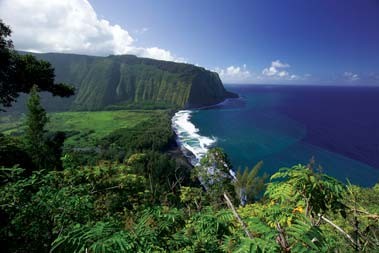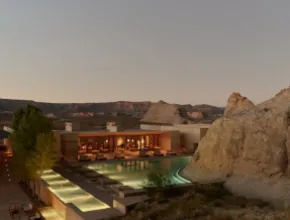Hit the hardest of any hotel segment by perception issues and economic woes, resort hotels are finally seeing an upsurge in demand.
According to an assortment of recent hotel forecasts from consultancies such as Smith Travel Research and PricewaterhouseCoopers (PwC), hotels, particularly those at the top end of the scale, are poised to make a strong comeback this year and beyond.
PwC's U.S. lodging forecast predicts "robust growth" this year, with ADR (average daily rate) rising 4.1 percent over 2010. At luxury properties, ADR is predicted to increase by 6.3 percent.
While no one is calling it a seller's market yet—and rates still remain below their peak levels of several years ago—planners such as Adam Lawhorne, president of Chicago-based Meeting Incentive Experts, are finding more flexibility is required when negotiating for space at high-end resorts these days.
"When it comes to five-star resorts, I'm not seeing higher rates, but less availability, especially during peak periods," he says. "Resorts are definitely recovering from the AIG Effect and more people are going for five-star properties."
Mary MacGregor, vice president of account development for BCD Meetings & Incentives in Minneapolis, is also seeing an uptick in resort demand, particularly for the programs she is planning for 2012. She is also seeing rates "creeping back up" at many resort properties.
"For our clients who are looking at high-end resort destinations during high season, we're seeing higher rates and much less availability," she says. "We're in the process of having a different dialogue with our clients than we did in the days when there were so many opportunities to take advantage of because of what our industry had been through."
MacGregor now counsels clients to be more flexible and to "jump on those deals that still do exist. You can still capitalize on good rates, but you have to look further and harder."
New Perceptions
When asked why more organizations are once again choosing resort destinations, planners cite waning concerns over perception, renewed interest in incentive programs and the health and wellness trend as among the key reasons.
Gary Cornwell, COO of Galactic Marketing Incentives in Arlington, Texas, says the perception environment has changed since two years ago when one of his clients cancelled a meeting at a high-profile resort in favor of a low-key property that actually cost more money.
"This kind of thing has gone away," he says. "People are still cautious, but they are no longer ignoring resort destinations."
Some planners observe that perception issues vary widely by industry, with pharmaceutical groups still the most likely to shy away from resorts because of tight regulations governing the pharmaceutical industry.
"Most corporations are not as concerned with image now, so this puts resorts in a better position," says Andjela Kessler, president of Atlanta-based Incentive Travel and Meetings. "We're especially seeing greater interest in resort meetings from insurance and financial companies, while pharma is still holding back."
Nola Conway, president of Global Destinations Marketing in Beverly Hills, Calif., sees a similar scenario, adding that "technical, real estate and communications groups are shifting back toward resorts now, although pharma companies are still staying away."
Kessler also notes a strong interest in the wellness and recreational opportunities provided by resort hotels. MFMA







